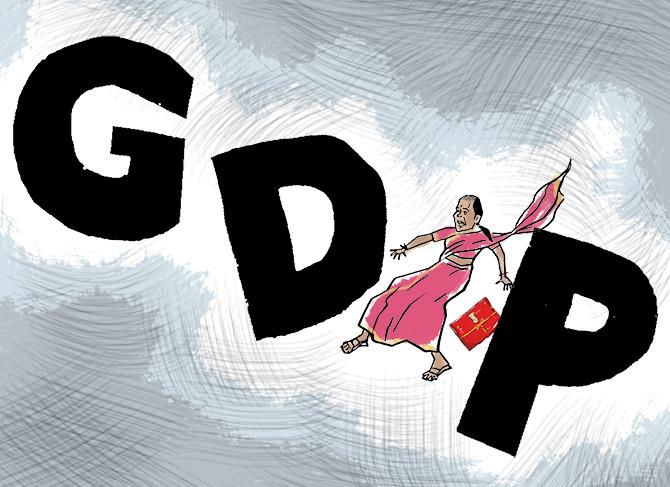India's economy is expected to grow by 8-8.5 per cent in the fiscal beginning April 1 and is well placed to meet the future challenges on the back of widespread vaccine coverage, supply-side reforms and easing of regulations, said the pre-Budget Economic Survey on Monday.

The Economic Survey 2021-22, tabled by Finance Minister Nirmala Sitharaman in Parliament, expects the economy to grow by 9.2 per cent during the current financial year, indicating a recovery to the pre-pandemic level.
The economy had contracted by 7.3 per cent in 2020-21 on account of impact of COVID pandemic and subsequent nationwide lockdowns to check the spread of coronavirus.
“Overall, macro-economic stability indicators suggest that the Indian economy is well placed to take on the challenges of 2022-23.
“One of the reasons that the Indian economy is in a good position is its unique response strategy," the survey said.
The Indian economy, as seen in quarterly estimates of GDP, has been staging a sustained recovery since the second half of 2020-21.
Although the second wave of the pandemic in April-June 2021 was more severe from a health perspective, the economic impact was muted compared to the national lockdown of the previous year.
"Advance estimates suggest that GDP will record an expansion of 9.2 per cent in 2021-22.
“This implies that the level of real economic output will surpass the pre-COVID level of 2019-20," the survey said.
The survey expects private sector investment to pick as financial system is in good position to provide support necessary for speedy revival of the economy.
The document authored by a team lead by principal economic adviser Sanjeev Sanyal further said the fiscal support given to the economy as well as the health response caused the fiscal deficit and government debt to rise in 2020-21. However, there has been a strong rebound in government revenues in 2021-22 so far.
As per the survey, the government has the fiscal capacity to maintain the support, and ramp up capital expenditure when required.
The strong revival in revenues also provides government with fiscal space to provide additional support as well, if necessary, it added.
Also, the banking system is well capitalised and the overhang of Non Performing Assets (NPAs) seems to have structurally declined even allowing for some lagged impact of the pandemic.
Referring to the price situation in the country, the survey said "although the high WPI inflation is partly due to base effects that will even out, India does need to be wary of imported inflation, especially from elevated global energy prices".
"Overall, macro-economic stability indicators suggest that the Indian economy is well placed to take on the challenges of 2022-23.
“The growth in 2022-23, it said will be supported by widespread vaccine coverage, gains from supply-side reforms and easing of regulations, robust export growth, and availability of fiscal space to ramp up capital spending.
"The year ahead is also well poised for a pick-up in private sector investment with the financial system in a good position to provide support to the revival of the economy.
“Thus, India's GDP is projected to grow in real terms by 8.0-8.5 per cent in 2022-23," it said.
The projection, according to the survey, is based on the assumption that there will be no further debilitating pandemic related economic disruption, monsoon will be normal, withdrawal of global liquidity by major central banks will be broadly orderly, oil prices will be in the range of $70-75 per barrel, and global supply chain disruptions will steadily ease over the course of the year.
The survey also said India's external sector is resilient to face any unwinding of the global liquidity arising out of the likelihood of faster normalisation of monetary policy by systemically important central banks, including the Fed, in response to elevated inflationary pressures.
The latest survey has shifted from the two-volume format of recent years to a single volume plus a separate volume for statistical tables.











 © 2025 Rediff.com -
© 2025 Rediff.com -